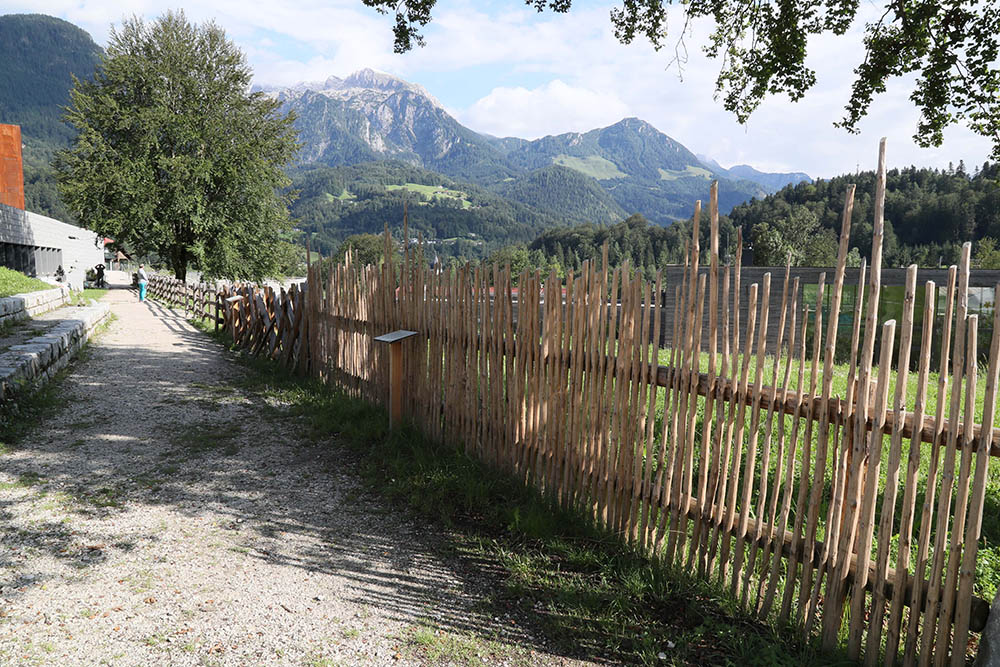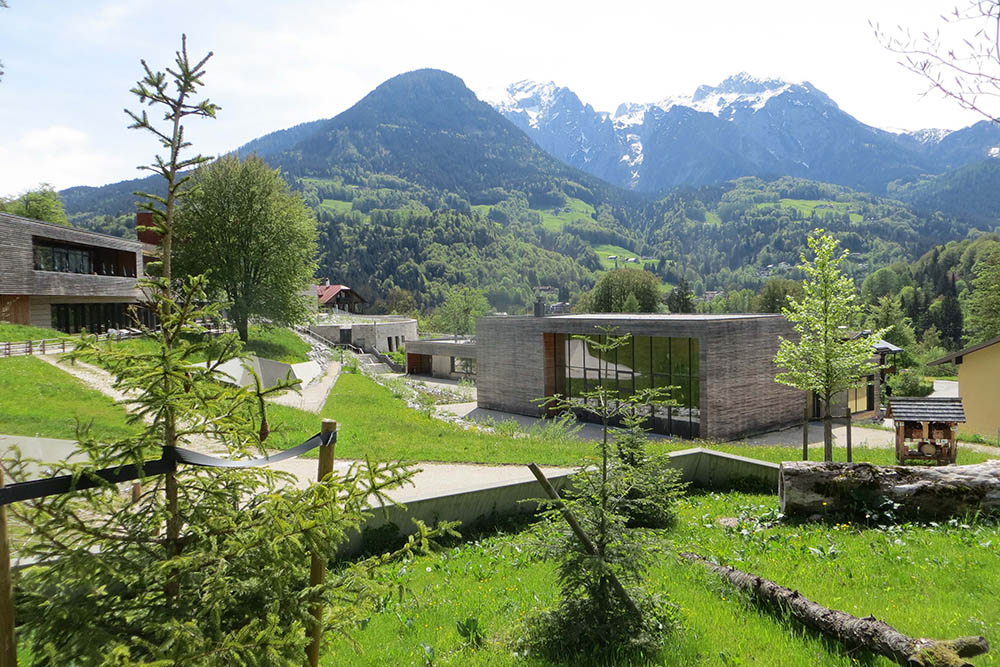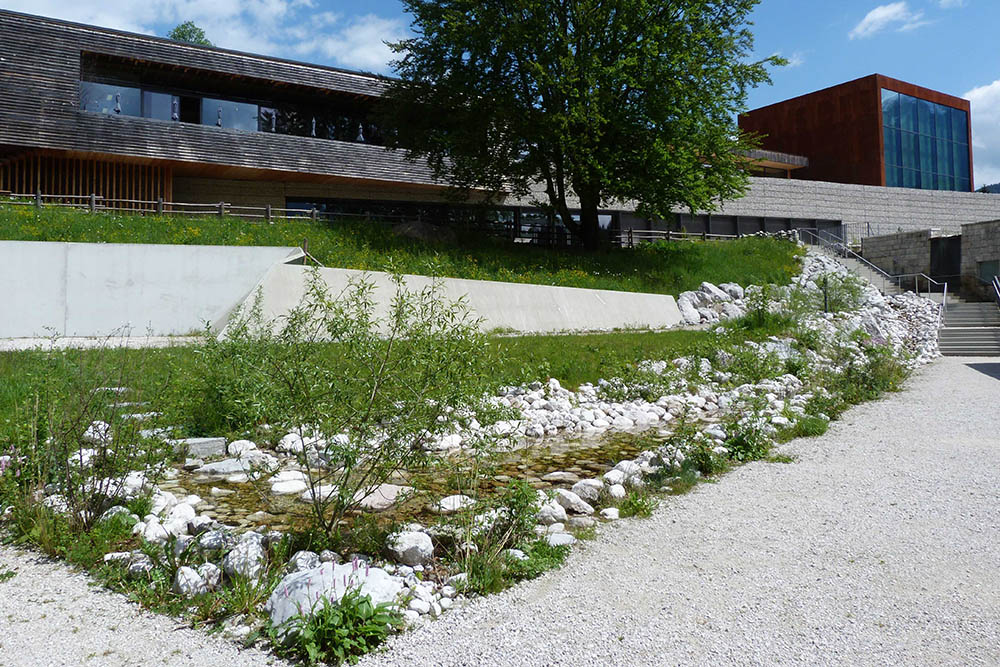
Water place
The water place is located in the immediate vicinity of the education center. A small, standing body of water surrounded by water-loving plants provides an ideal habitat for tadpoles in spring. For those who would like to get to know the water from its mechanical side, there are numerous opportunities to try out and experiment with the swan pump and water trough.
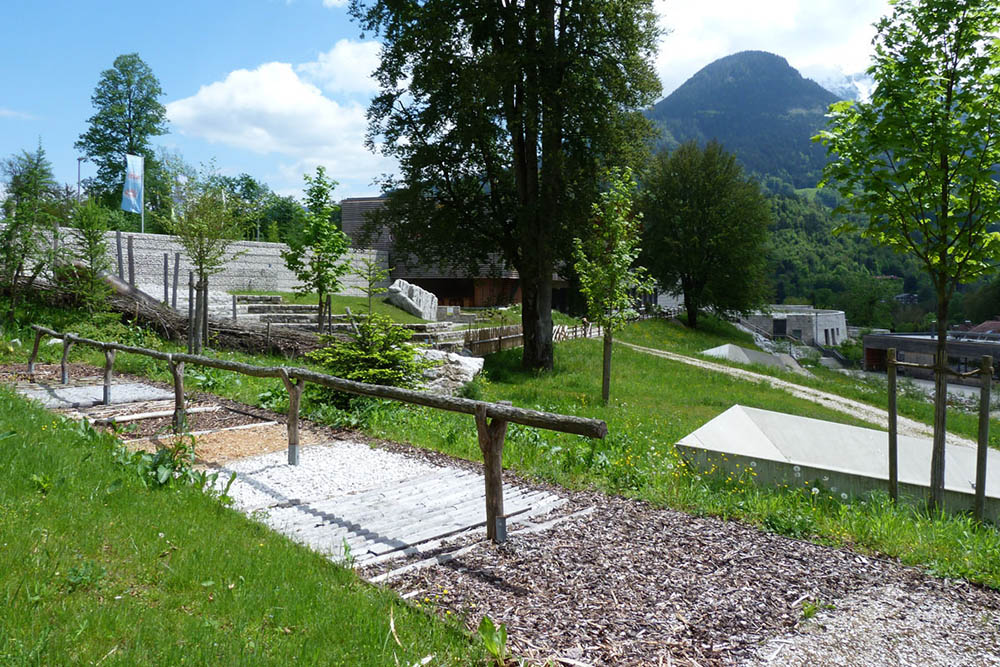
Forest square
A creatively designed barefoot trail provides experiential space for the often neglected sense of touch. The most important tree species of the national park are located in the immediate vicinity and invite close observation throughout the different seasons. How much life there is in dead wood and how wood transforms into life-giving soil with the help of numerous creatures can be explored on site with binoculars and magnifying glasses.
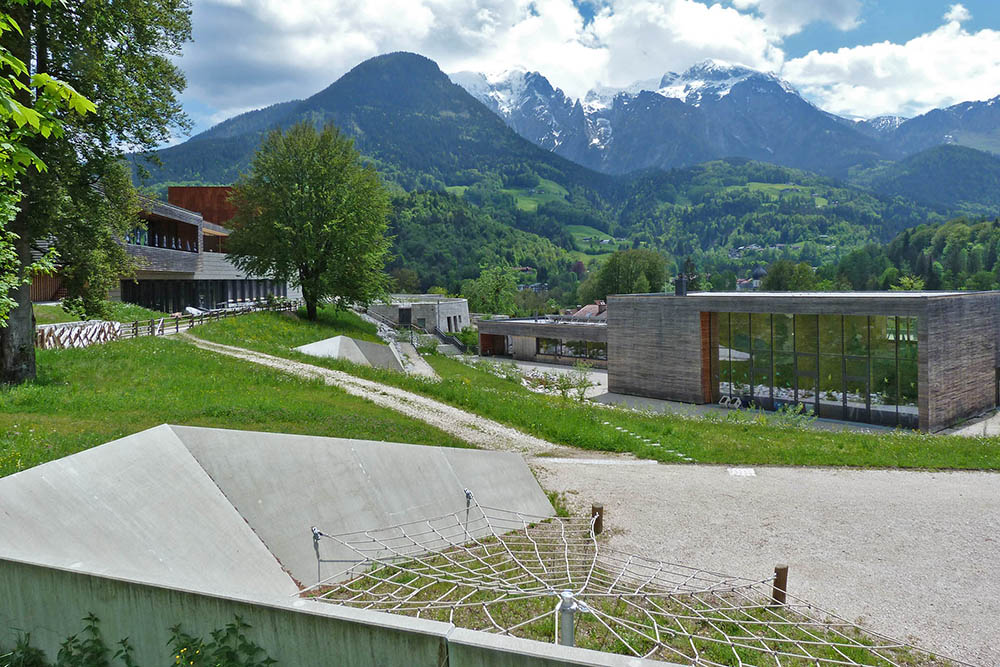
Meadow Square
A spacious, oversized spider's web acts as a giant hammock, inviting visitors to linger and explore the meadow from above - without leaving the usual traces in the meadow. Various meadow plants and animals can be viewed in detail and identified.
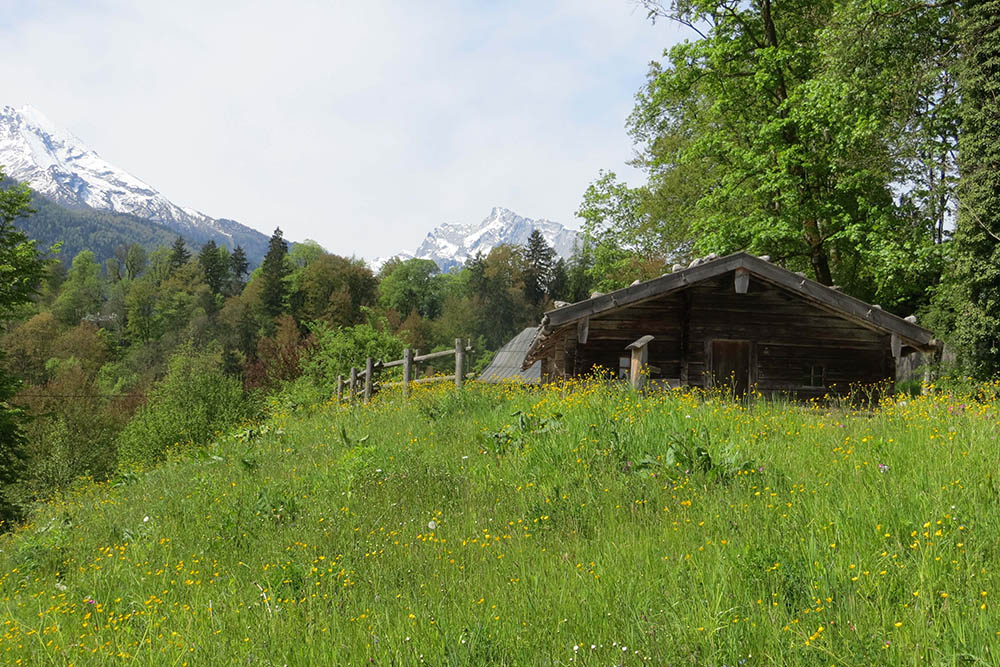
Almkaser
Nestled in its new surroundings is the historic "Lahnerkaser", an alpine hut dating back to 1848, which originally stood at the foot of the Watzmann in the national park. Since it had not been used there for many years, it was dismantled and rebuilt with great care at the Haus der Berge. The aim was to preserve as much of the historical substance as possible. The interior of the hut was also left untouched, craftsmen from the region faithfully reconstructed an open fireplace and the small cellar room was also reconstructed.
Within the framework of alpine programs for groups and school classes, participants not only get to know the romantic side of alpine life, but can experience first-hand how simple and often arduous life on the alp was in earlier times.
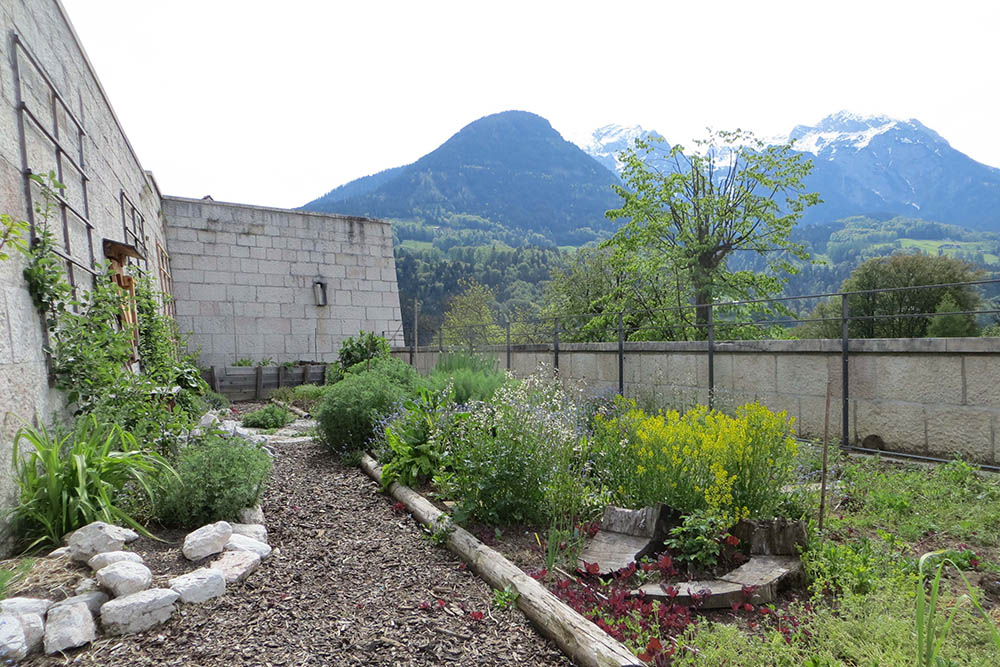
Herb and vegetable garden
The sunny herb and vegetable garden provides a habitat not only for native plants. In addition to important kitchen herbs, various Mediterranean species as well as rare fruit and vegetable varieties thrive there. Due to the organic cultivation of the garden, the plants are perfectly suited for further processing in the meadow kitchen. During group programs, participants get to know the different plants with all their senses and learn interesting facts about their use and healing properties.
